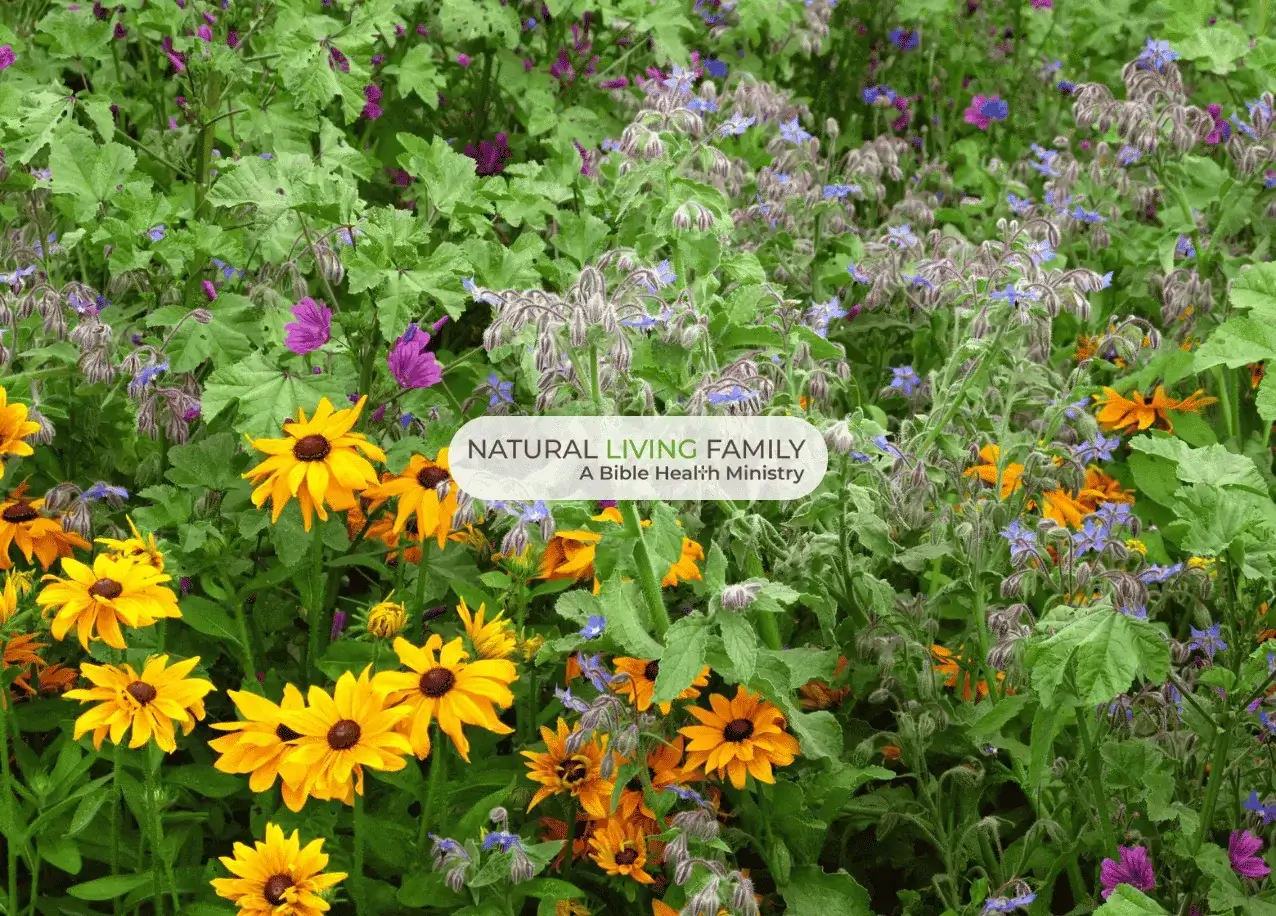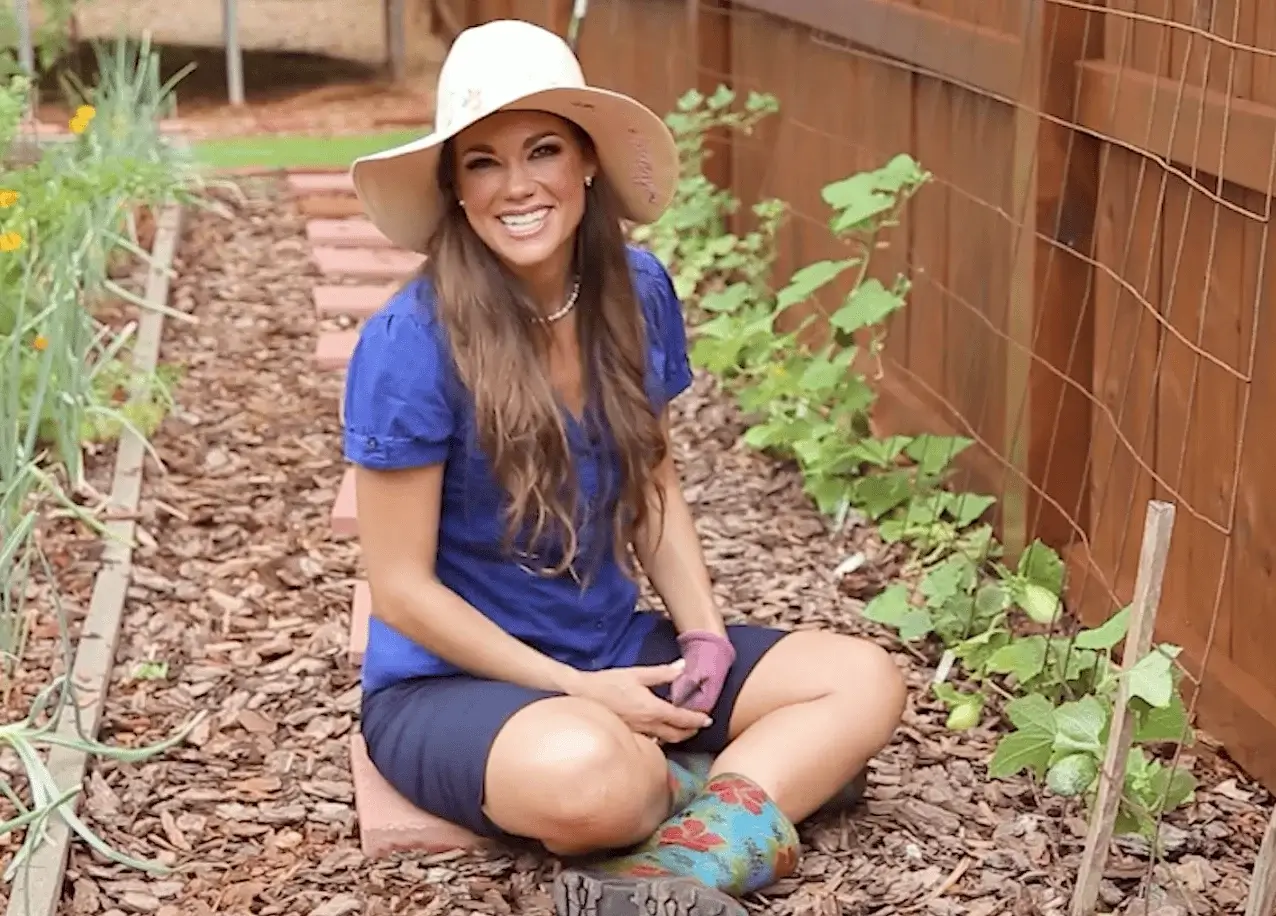The perfect gardening day can quickly go south if you’re stung by a red ant or wasp. If you can relate, you need my Essential Oil Ant Killer! This form of pest control is non-toxic, meaning chemicals won’t leach into the soil..or your food.
Unlike traditional pesticides, it doesn’t kill insects that are beneficial to your garden. Many times, you destroy ants and wasps but add a myriad of other issues.
This recipe is a safe and effective solution. Bonus: It smells fantastic. No migraine-inducing fumes? That, my friends, is priceless.
Table of Contents
Pest Control for Organic Gardens
No matter what your garden looks like, I’m sure you deal with pests in one form or another. As an avid gardener from the time I could walk, I’ve seen just about all the unwanted critters that come with working outdoors.
Worms, ants, wasps, even snakes! Nothing surprises me anymore.
There are some easy ways to manage pests using organic, non-toxic methods.
- Cleanliness: Keep your garden clutter-free to minimize crawling creepers. They enjoy hiding, and the fewer places to disappear, the better. The minimalist look is in when it comes to pest-free gardening! Once, I used cinder blocks to support a large container plant, and a snake made his home in the little crevices. That was a fright! I’ve since cut down on my ornaments.
- Diversity. A garden full of life tends to self-regulate—plant many different types of seeds for natural pest protection. Doing so attracts other bugs and promotes a natural cycle of elimination. For example, I had tomato hornworms stage a coup on my tomatoes. A flock of yellow finches wiped them all out within a couple of days. I was so grateful!
- Healthy Plants. Like a healthy human’s immune system, a healthy plant can fight pests and diseases. Just as we give our children a healthy head start, we do the same for our plant babies. Give your plants the best start with quality soil built with organic compost and amendments.
- Heirloom Plants. Heirloom plants have a tried-and-true resistance to pests. They’re hale and hearty, withstanding climate, ants, you name it! Bonus: They have the best flavor! You can also save their seeds from one year to the next, which I love doing.
I know my family is going to be smelling, touching, and even eating the plants that come from my garden. It’s important to me that we aren’t absorbing, inhaling, or ingesting toxins.
This ant and wasp killer is a huge part of my game plan because I can knock out whole nests or hives without chemicals. There’s no need for toxins to have a place in any area of your life, including gardening!
Natural Pest Control Ingredients 101
You may be surprised to learn you can create pest control with common pantry ingredients! I’m sure you have most of these items in your kitchen already. Here’s what you need to add to your shopping cart.
Raw Organic Local Honey or Grade A Dark Amber Maple Syrup: Like most living creatures, ants are attracted to sweet things. Honey or maple syrup acts as a trap, luring them in to consume other ingredients that will eradicate their nest.
Ants are unlikely to eat the essential oil mixture on its own but adding that hint of sweetness tricks them.
They’ll never know what’s coming!
Organic Unscented Liquid Castile Soap or Homemade Dish Soap: Castile soap is an age-old remedy that is harsh enough to kill bugs but gentle enough not to harm your beautiful garden. You can also use our Homemade Dish Soap, which contains essential oils that will only further the effectiveness of this remedy.
Citrus Essential Oils: These bright-smelling EOs are your best secret weapon against pests. Citrus essential oils contain d-limonene, which stops ants and other insects right in their tracks. Fabulous citrus EOs include:
- Bergamot
- Citronella
- Grapefruit
- Lemon
- Lemongrass
- Lime
- Neroli
- Orange
- Tangerine
Make Essential Oil Ant Killer
This recipe comes together quickly and is easy to apply. This is a simple job that even kids can help with!

Ant and Wasp Killer
Quantity
Ingredients
- 1 gallon warm purified or distilled water
- ½ cup raw organic local honey or Grade A Dark Amber maple syrup
- 3 ounces organic unscented liquid castile soap or Homemade Dish Soap
- 1.5 ounces citrus essential oil (any combination of key lime, lemon, lime, orange, or any other citrus oils with d-Limonene)
Supplies
Instructions
- Mix the water, honey, soap, and essential oils in a 3-5 gallon bucket.
- Saturate the ground where the ant nest or wasp hive is. This usually takes the entire recipe.
- Wait a week before applying again.
Step One: Mix the Ingredients
Mix the water, honey, soap, and essential oils in a 3-gallon bucket.
Step Two: Apply the Treatment
Saturate the ground where the ant nest or wasp hive is. This usually takes the entire recipe. Wait a week before applying again.
Want More All-Natural Pest Control?
This ant killer with essential oils is just the tip of the iceberg! There are so many other fantastic DIY recipes you have to try. Your home will be pest-free and smell amazing.
Homemade Spider Spray: My Homemade Spider Spray is an excellent solution to a common pest. The best part? It doesn’t kill the spiders; it just keeps them out of your house!
Spiders benefit the ecosystem, but that doesn’t mean you have to know they exist. This DIY gets sprayed on any spider webs or egg sacs. It’s a message to “bug off!”
Homemade Floor Cleaner for Bugs: In Georgia, we have a joke that our state bird is a mosquito. I think our state bird could be a cockroach, beetle, moth, or stink bug. We have that many options; take your pick! It’s not uncommon to see a bug or two skittering across the floor.
That’s when it’s time to pull out our non-toxic Homemade Floor Cleaner for Bugs. It makes your floors shiny and attractive to you but gross to insects. Plus, it’s non-toxic, and you don’t have to smell fumes for hours. Win!
















